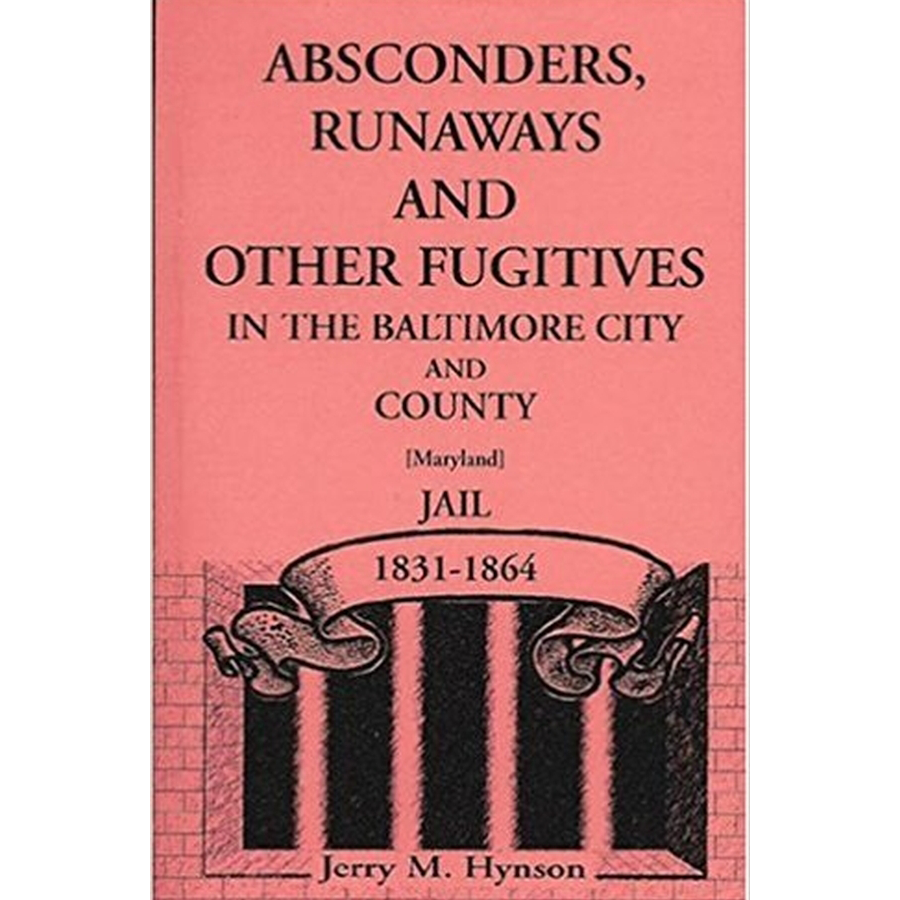Absconders, Runaways and Other Fugitives in the Baltimore City and County Jail
Couldn't load pickup availability
It has long been recognized that the legal institutions of a society result in a body of records that are a major source of genealogical information. Examination of the records of the Baltimore City and County Jail dockets for 1831 through 1864 reveals an abundance of genealogical clues, including records of prisoners who were identified as runaway slaves. African American genealogist will find this volume useful in linking slaves to masters, and in some cases to other slaves. However, the laws and institutions governing runaways were not limited to cases of runaway slaves. Deserting seamen, runaway indentured servants, deserting soldiers, and runaway apprentices were also found among the inmates and are include herein. Two types of records are examined here: the "Runaway Docket," and the "Accommodations Docket." The Runaway Docket provides records of persons held in jail under formal charges of violating some phase of the Runaway Laws who were awaiting court action. The Accommodations Docket provides records of persons who were held in jail on the request of slave owners, masters of servants and apprentices, ship's captains, and military officers. In these cases the jail offered a convenient holding place for possible runaways, newly purchased slaves, and military deserters. These laws offer insight into the prevalent community attitudes and practices during the mid-1600s to the mid-1800s, and therefore the first portion of this work comprises a compilation of these laws. The larger share of the volume, the Baltimore City and County Jail Runaway and Accommodation Dockets, 1831-1864, consists of entries that list the prisoner's name, date committed, alleged owner, and disposition. A full name index adds to the value of this work.
Jerry M. Hynson
2004, 5.5" x 8.5", paper, index, 200 pp.
ISBN: 9781585499434
101-H0943
